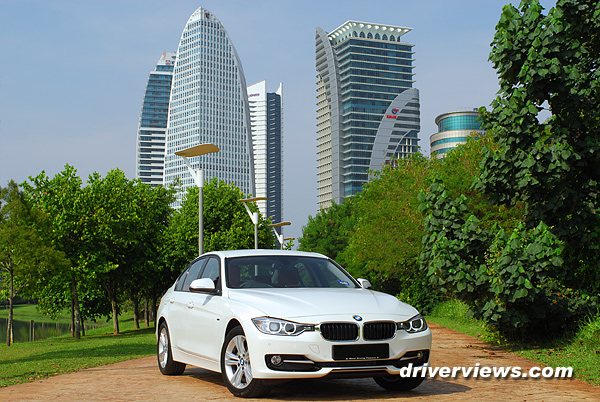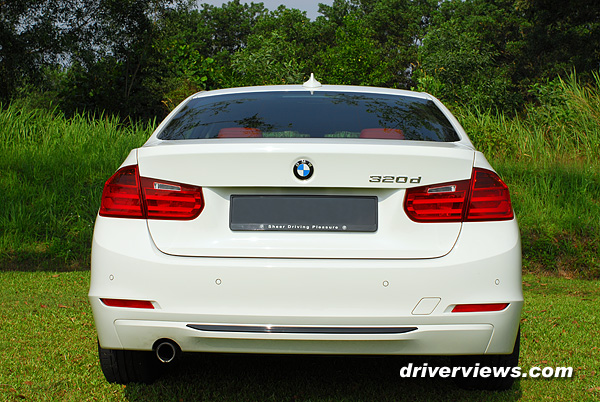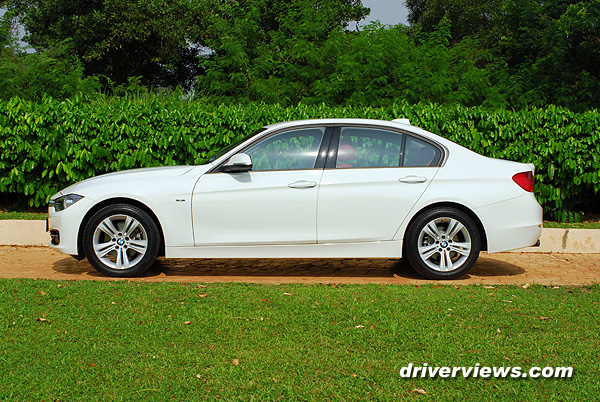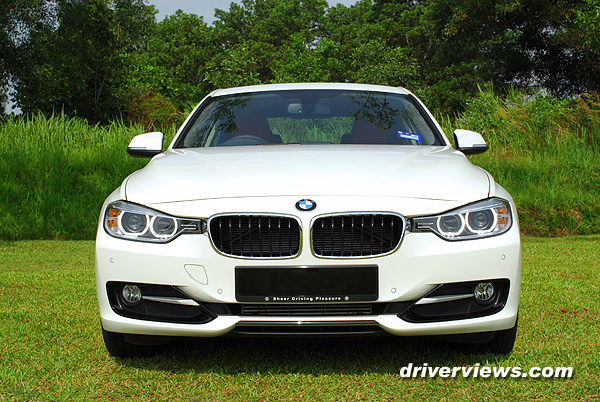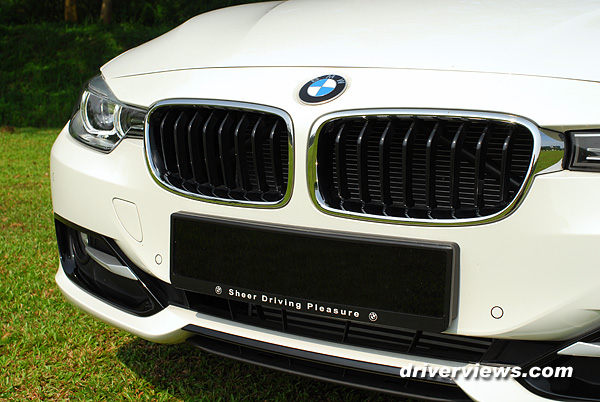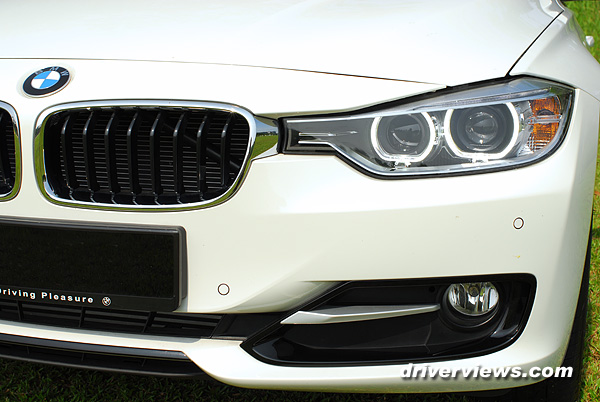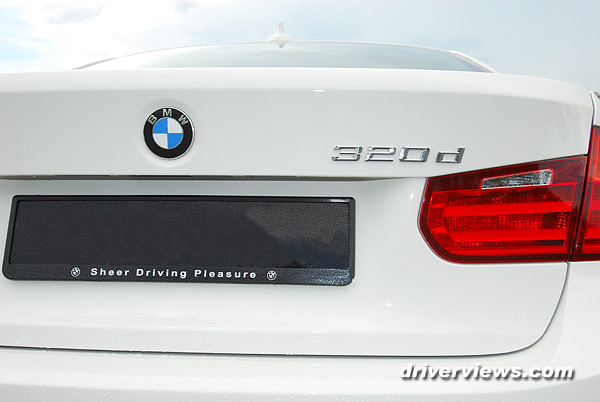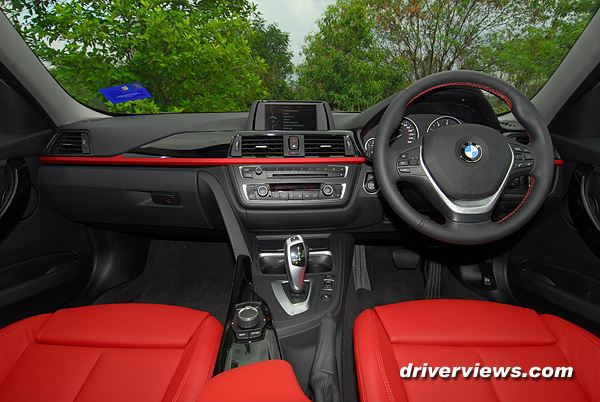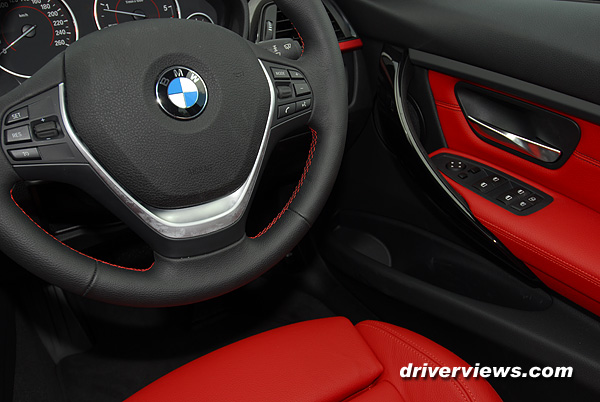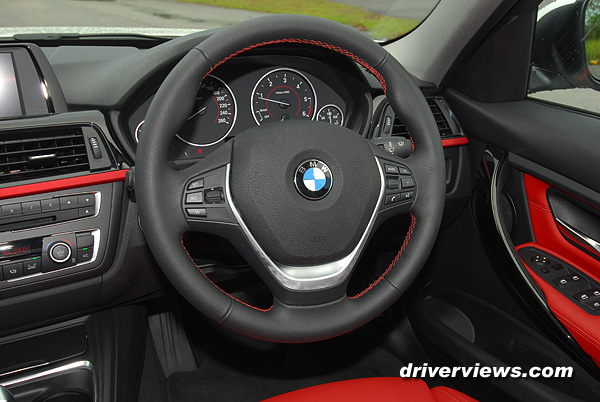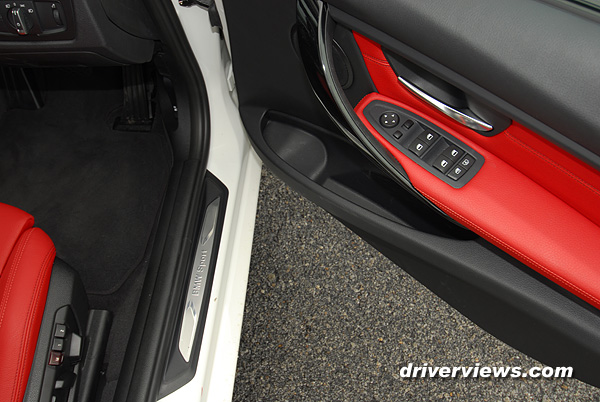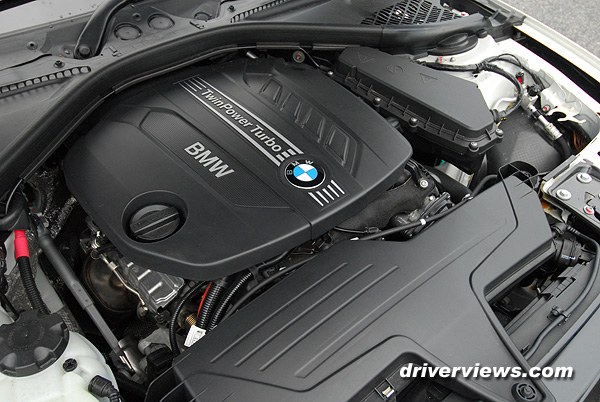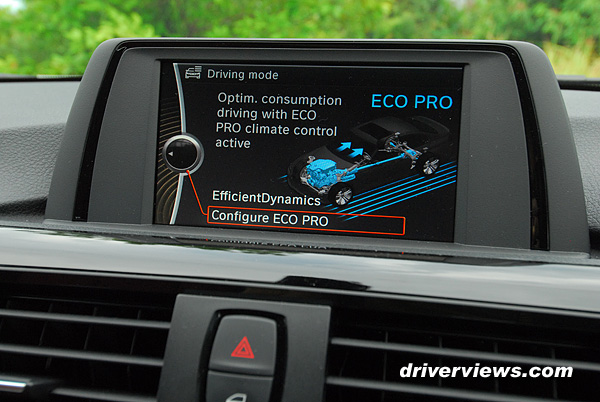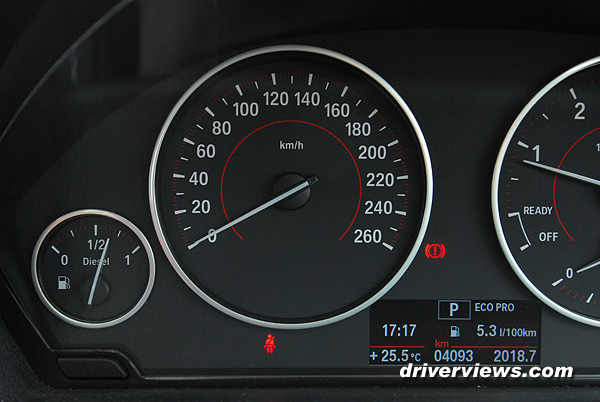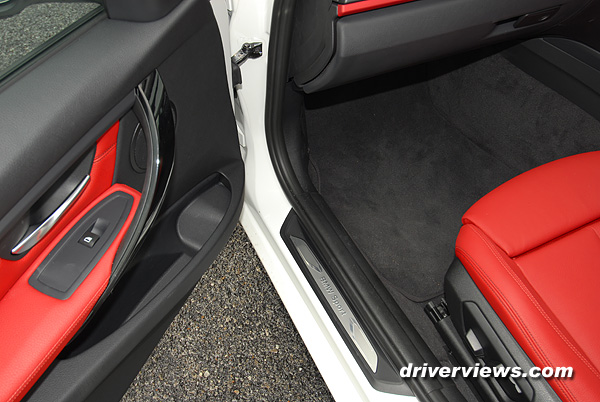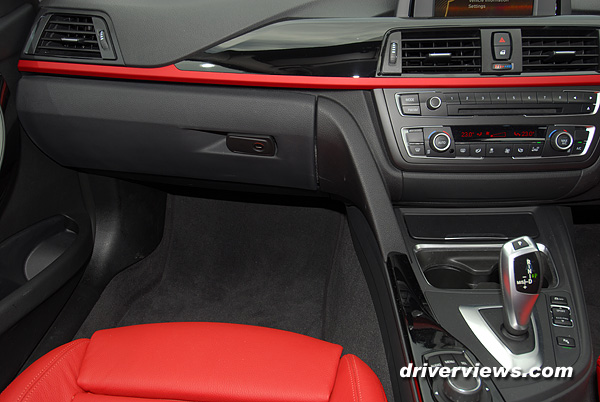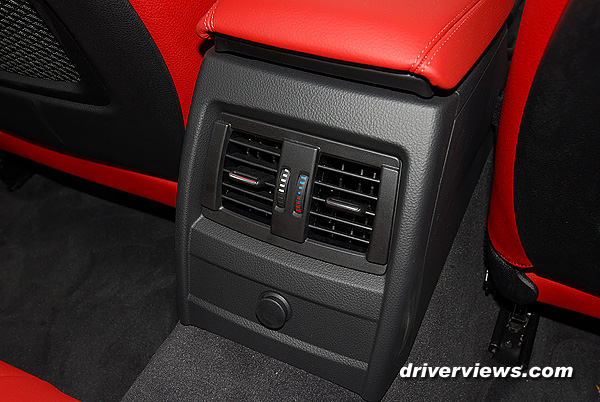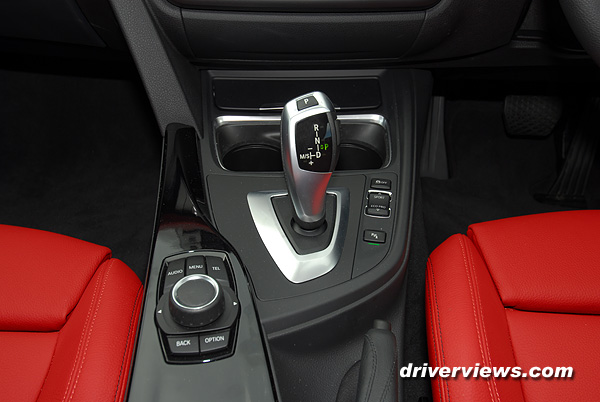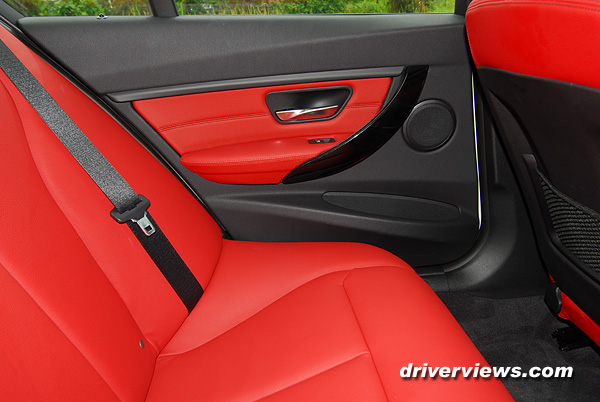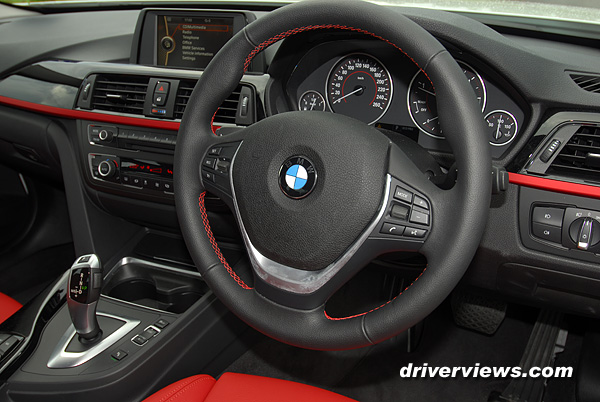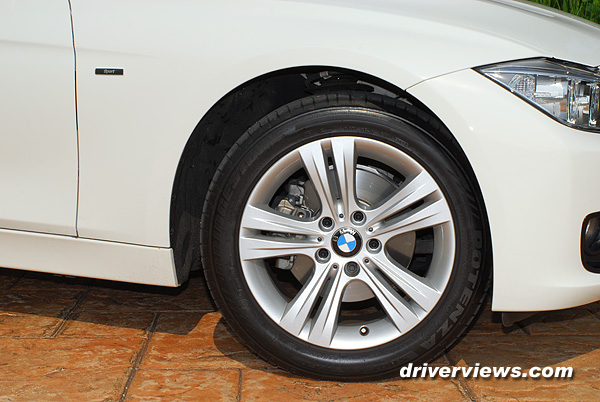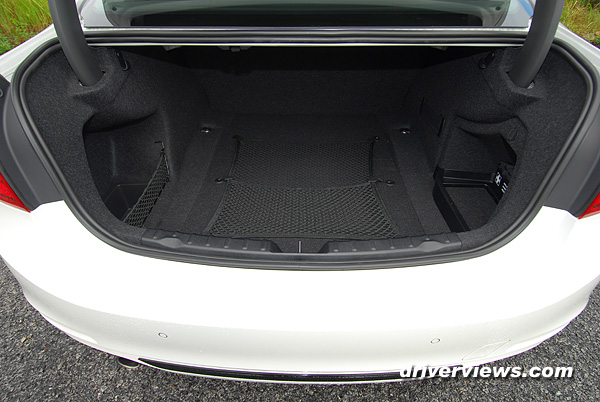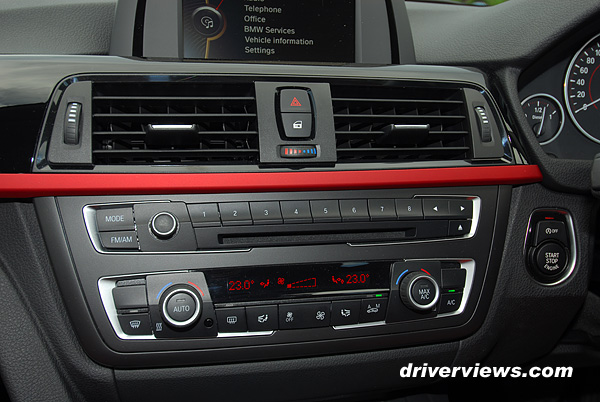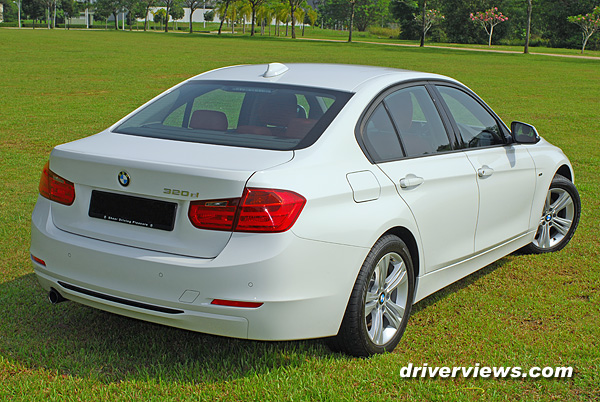BMW continues to make a strong and persuasive case to consider diesel as a viable alternative fuel source to power your vehicle. After a gap of around 3 years from my last test drive on the E90 320d Sports, my attention is now turned to the updated F30 320d. I was curious to find out whether the new kid in town was able to outperform and improve on the predecessor’s reputation as a diesel powerhouse.
The modern diesel engine is a proven technology and has evolved much since its invention in the 19th century. Today with turbochargers and particle filters, the modern diesel engine offers greater torque, lesser CO² emissions and better mileage than its petrol counterpart.
Diesel powered sedans in Malaysia have yet to take off in a big way compared to countries in Europe. It is probably down to a few major factors like the fuel quality issue. The higher initial upfront cost compared to petrol powered variants and the less than user friendly pumps at the gas station may have also dampened the enthusiasm for many to make the switch.
Many remain unaware of the existence of luxury diesel powered sedans such as the F30 320d. During our stop at a gas station we lined up side by side with a tour bus and its driver walked over curious to enquire whether this test car was indeed powered by diesel. Of course things have improved compared to a time when a worried looking attendant rushed over to alert us that we will be filling up the car with diesel.
For the 320d, BMW Malaysia offers two trims, the Sport Line and the Modern Line. This test model is the Sport Line and what you get is essentially an interior finishing that conveys a sporty image. These include a sports leather steering wheel with contrast red stitching, red leather sports seats with exclusive stitching and piping, instrument cluster with red highlights and coral red matt trim finishers.
Externally this F30 320d appearance differs from the earlier F30 328i in a few areas. For one, there is the absence of the chrome trims which was prominent in the 328i. In replacement is high gloss black on the kidney grilles, bumpers and window bars. Even the single exhaust tail pipe has an end pipe finisher in chrome black.
Other than that, the car is relatively basic. Unusually for a ‘Sport Line’ model there are no pedal shifters. The iDrive controller appears to be a stripped down version of the one that we are familiar with, while the 6.5 inch central LCD display is much smaller than the one we saw in the 328i. Included are Bluetooth and connectivity for UBS devices. There is no GPS (navigation system) and the lesser feature set offered here is probably to keep the costs down.
Crucially the mandatory safety features are still in place. These include the multiple air bags, dynamic traction control and dynamic stability control, run flat tyres, dynamic braking lights, child seat ISOFIX, ABS etc. Cruise control is provided and this is engaged via the multifunction buttons on the steering wheel and there is park distance control (PDC), for the front and rear to assist in those tricky parking maneuvers.
DRIVING IT
Usually I am impressed with the quality of finishing in a BMW. However, this test model was an exception. The car was very new when it came to us. However, the sliver trim on the steering wheel appeared to have been corroded by some caustic liquid. The other anomaly was that there was no audible tick whenever we used the signal indicators. This resulted in having to make frequent inconvenient downward glances on the instrument panel just to make sure the indicators are engaged.
Putting aside the QC issues, the well padded sports leather seats offered good support and comfort for the driver. The front seat adjustments are electronic with memory functions for the driver. At the front you can also personalize the air flow with a two zone air-condition with automatic function. As a driver, you get a good driving position and sufficient leg room without having to reposition and thereby reducing the leg room of the passenger behind you.
Powered by the N47 diesel engine, BMW’s gave a detailed description of the engine in its catalogue, ie ‘BMW Twin Power Turbo four-cylinder diesel engine, consisting of a turbocharger with variable turbine geometry and common rail direct injection’. Not withstanding the lengthy description, this 1,995cc engine is a real powerhouse capable of producing a max output of 184hp @ 4,000rpm and a max torque of 380Nm @ 1,750-2,750rpm.
During cold starts the engine idles with a prominent audible diesel clatter. So far, if I can recollect correctly it would seem that there is not much difference between the older E90 320d and this F30 320d in terms of external insulation from the relatively industrial sounding diesel engine. Inside the cabin, the engine note is less pronounced but the sound waves and vibrations emitted are enough to make you aware that this is a diesel car.
During our test drives which we accumulated close to about 5,000km, the diesel engine worked well in tandem with the F30 chassis to provide a satisfying and enjoyable drive. One of the major highlights of this car was the impressive fuel efficiency of the N47 diesel powerplant. Usually I would set the car’s driving experience control at ECO PRO Mode while the other alternate driver usually leaves it at the default COMFORT Mode.
Just before we returned this car, our average fuel consumption was at 5.3 liters per 100 km as per the on board computer. This was not just figures alone coming out from a computer. The impressive fuel efficiency was also backed up by our observation on the fuel gauge. In one lengthy journey of around 200km+ the fuel gauge meter barely moved from 1 to ¾ tank. In fact we could have comfortably do a return trip and still have sufficient fuel for at least 2 more days to do our daily town trips.
With plentiful low down torque, this car pulls away quickly and with gusto from the lights. Even on the ECO PRO mode which is made for better fuel efficiency and is a toned down mode, the F30 320d still delivers sufficient torque with no lag in response giving you the confidence to execute overtaking maneuvers even during high speed cruises.
The century sprit (0-100km/h) is specified at 7.6 sec. During the acceleration test, I noted that the car’s acceleration performance was comparable to the F30 328i, with the latter having a slight edge due to its higher power output. The F30 320d is a versatile car and it is just at home whether in town drives or out in the freeway. There is no lag in output and there are always plentiful reserves in store.
Transmission is the new 8 speed automatic with option for manual gearchanges via steptronic on the gear lever. The absence of pedal shifters took away the fun side of quick manual shifts on this car. Nevertheless, the automatic transmission worked well and was discreet enough so as not to distract you from the high performance of this car.
Ride quality is a definite improvement over its predecessor the E90 320d Sports. Similar to the F30 328i, the car delivered good comfort levels for the driver and passenger. Even when road conditions are not ideal comfort levels remain high. Nevertheless, it is hoped that BMW will further improve on the sound insulation in the cabin due to the prominent engine clatter from the diesel powerplant.
If there is one area which the E90 320d Sports have an edge is probably on the handling. The F30 320d gives just a bit less direct feel for the driver. The electric power steering still provides excellent feedback but it would be a challenge to replicate the handling of its predecessor. Understandably to make the car more ‘green’ and fuel efficient, it would make sense to equip it with an electric power steering.
Even after test driving this car and the F30 328i for some time, I have yet to get used to the automatic Stop/Start function. Although I know its there for a good purpose, I still find it awkward and would usually disable it. Tyres are 17 inch Bridgestone Potenza 225/50 R17 run flats which offered satisfactory levels of grip and roadholding.
Boot space appears sufficient. Unlike other BMW models, this F30 320d did not offer the option of a 60:40 rear seat fold down, which would have given potential owners better flexibility to carry more cargo and longer items. In car entertainment comprised a basic system with 6 loudspeakers. The sound quality even on this basic system is an improvement compared to what you would get in the previous entry level models.
If given an option to choose between the F30 320d and its predecessor the E90 320d Sports, I would lean more towards the former as I am more inclined to favour cars with better fuel efficiency and ride quality. The impressive fuel efficiency coupled with high performance of the F30 320d deserves a special mention as it rare to find a car these days with such a winning combination. The F30 320d has better specs (though relatively basic) and on paper should comfortably outperform its predecessor with its higher output and torque.
As to whether diesel is a viable alternative fuel source, remains a personal choice. Despite its clear benefits chiefly the better mileage per liter/gallon vs petrol, diesel is still not without its drawbacks (ie nitrogen oxide emissions, higher service costs). Given that there is still a premium to be paid for diesel powered sedans, the cost/benefit factor will probably favour those who accumulate a lot of mileage in their car. For those who rack up a lot of mileage and are in the look out for a high performance diesel sedan, the F30 320d should be on your shortlist.
MAINTENANCE
| Full Tank: | 57 litres @ RM103 (Euro 2M Diesel) | ||||
| Insurance: | RM8,084 per annum (estimated) | ||||
| Road Tax: | RM755 per annum (estimated) | ||||
| Standard Service: | Free service for first 3 years | ||||
| Warranty: | 3 Years or 60,000km whichever is earlier | ||||
These are estimated costs applicable to Malaysia only which are subject to change without notice. Road Tax is for private registration in Peninsular Malaysia. Standard/scheduled service excludes additional or specific service/repairs requested. Please reconfirm these terms and costs with an authorized BMW dealer.
VITAL STATISTICS
| Engine: | BMW Twin Power Turbo four-cylinder diesel engine | ||||
| Capacity: | 1,995cc | ||||
| Max Output: | 135 kW (184hp) @ 4,000 rpm | ||||
| Max Torque: | 380 Nm @ 1,750-2,750 rpm | ||||
| Top Speed: | 230 km/h | ||||
| Acceleration 0-100km: | 7.6 sec | ||||
| Fuel Consumption: | 4.5 litres per 100 km (combined) | ||||
Source: BMW Brochure
Note: Please reconfirm the above specifications with an authorized BMW dealer
SOUNDS
Click on these to sample sounds from the car!
